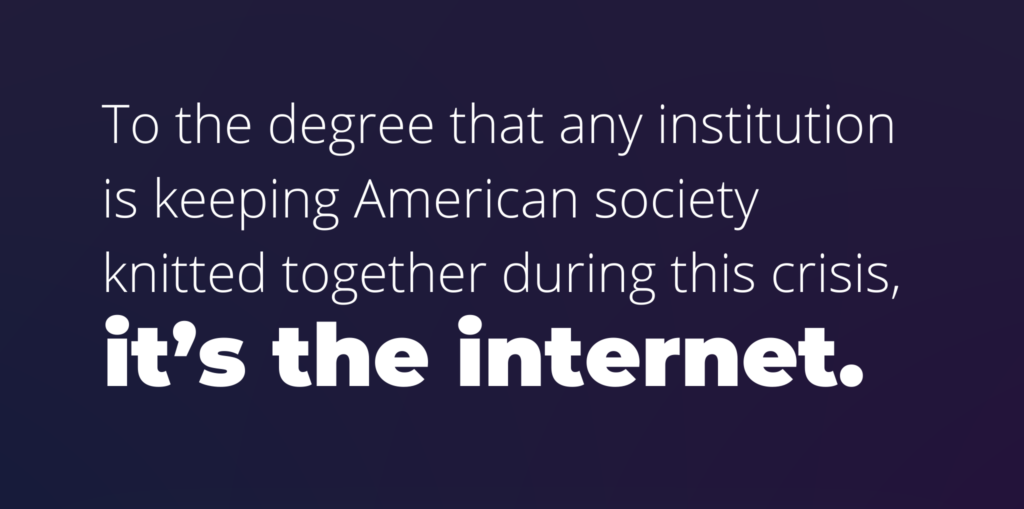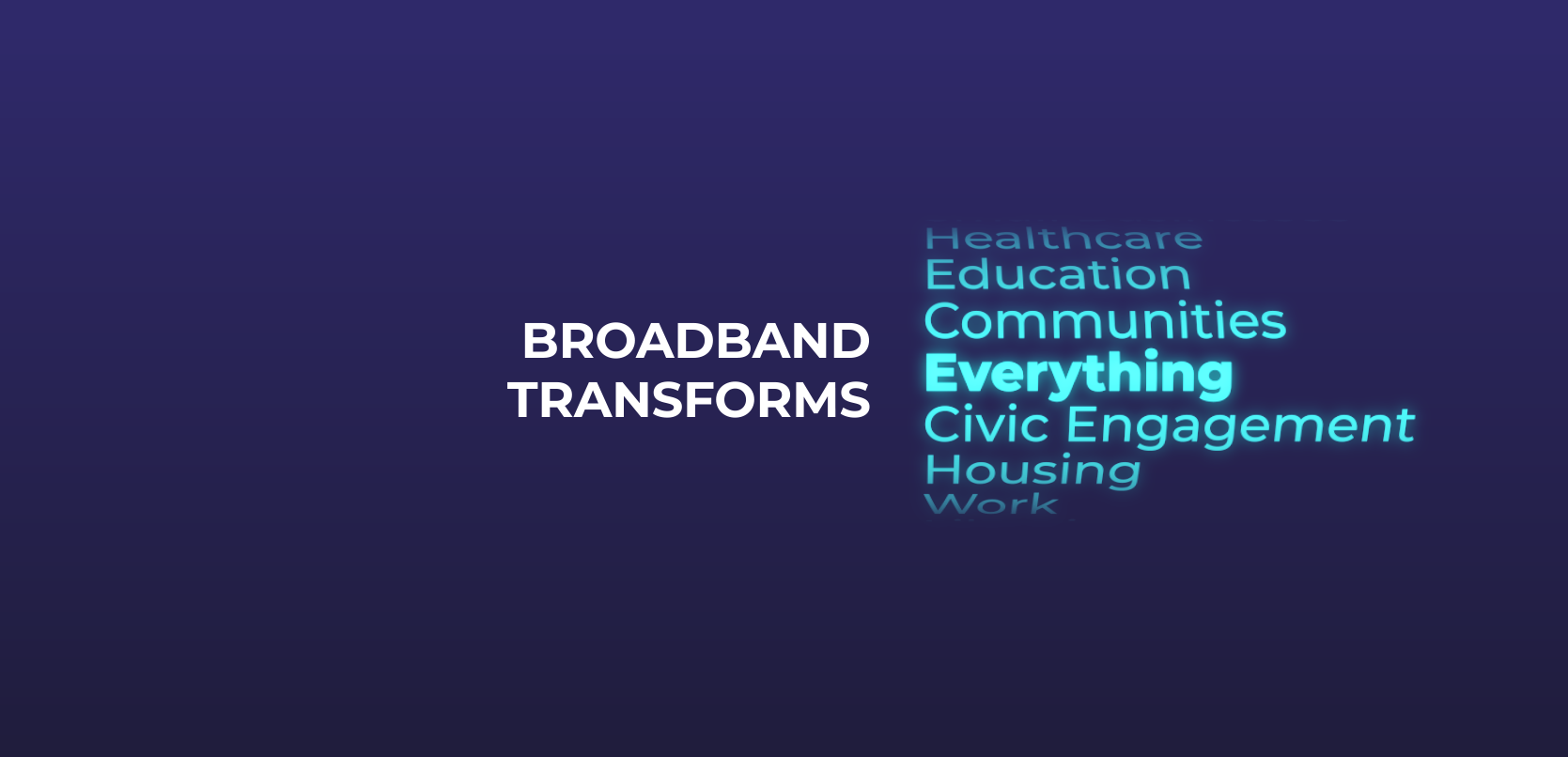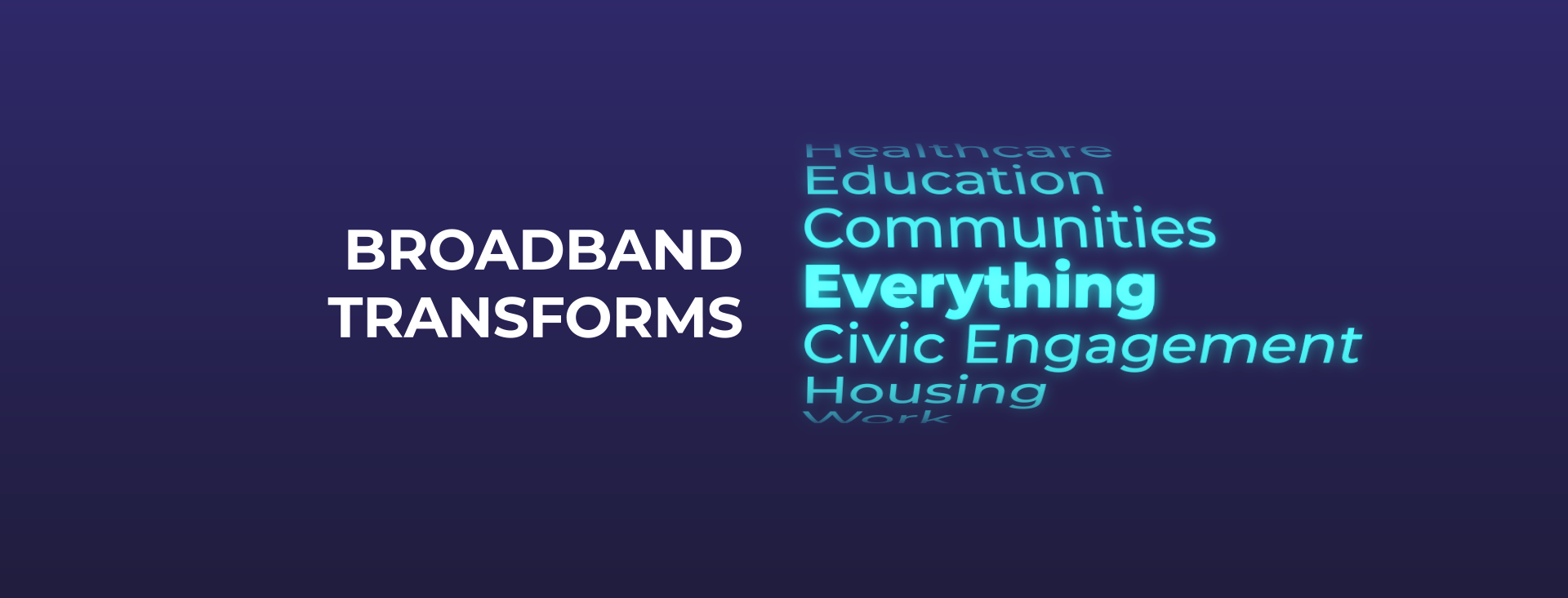Stay at home. Self-isolate. Social distance.
When the COVID-19 pandemic began in the United States in March 2020, Americans faced a new world of protocols as part of their daily lives. The uncertainty of the pandemic created stress and anxiety both personally and professionally. It was hard to know what would happen next. Will remote work be available? Will doctors see patients? How will schools teach students?
But as we considered answers to these stressful questions raised by the pandemic, there was one thing that worked exceptionally well— the Internet. When Americans became physically disconnected to prevent the spread of COVID-19, right when we needed an alternative to manage everything from education to groceries, the Internet kept America connected and running.
America’s use of the internet was already a big part of daily life, but the need to shelter in place during COVID-19 led to a staggering rise in daily use. Consider these numbers:
90 percent of Americans say the internet has been essential or important for them personally during the pandemic. (Pew)
Internet service providers recorded at least 30 percent growth, and as much as 40 percent during peak business hours and as much as 60 percent in some markets during the early pandemic in 2020. (BITAG)
81 percent of Americans have used video calling and conferencing during the pandemic. (Pew)
Some networks saw more than 300 percent increase in the amount of video conferencing traffic from February to October 2020. (BITAG)
Some studies estimated up to half the workforce shifted their work activities online, and most schools shifted to online formats. (BITAG)
Connecting virtually doesn’t fill every need, but it is a safe way to continue as many aspects of pre-pandemic life as possible. From families to small businesses, everyone had to get creative to adjust to this “new normal”. The Internet was no different and a number of unsung network engineers, Internet service providers, and digital platforms scaled up operations to meet the demand.

Not only did the Internet stay resilient, it expanded new avenues for a number of industries such healthcare, e-commerce, and live entertainment just to name a few. The Internet is the engine of our modern economy and culture, linking Americans to each other and the world.
As Charles Fishman wrote in The Atlantic, “To the degree that any institution is keeping American society knitted together during this crisis, it’s the Internet.”




